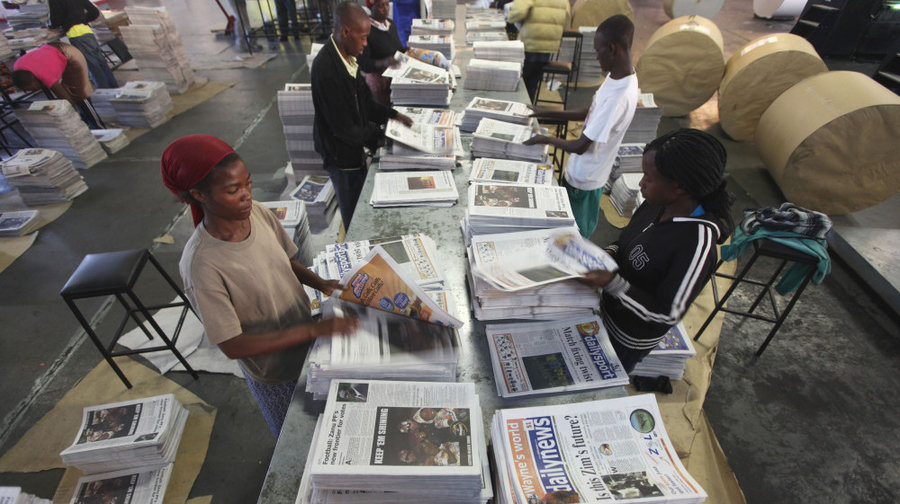Veteran media practitioner Takura Zhangazha says print media in Zimbabwe is in serious financial trouble.
Apparently, he says journalists and media employees are suffering at both a professional and personal level.
Meanwhile, since the turn of the millennium the print media has been facing stiff competition from online.
Zimbabwe’s media is heavily polarized amid allegations that it is captured by the state and the ruling party ZANU PF.
On the other side of the table, the internet has given the customer more options for consuming news.
More importantly, through social media and the countless creation and sharing tools emerging on the internet, it has given the consumers of news means to meaningfully participate in the shaping of news and opinion.
This has given rise to citizen journalism, which however comes with ethical shortcomings as well.
To make matters worse for the print, more than often they come to the party late by failing to really embraced the internet in time.
According to critics, whatever basic presence they have there has been the result of a reluctant admission of changing times and not the enthusiastic exploration of the many new opportunities the internet brings.
Now because their efforts have been dogged by reluctance, not much revenue has been realized from the internet.
The COVID-19 affected the global economy due to various lockdowns and travel restrictions imposed by governments in attempt to stop the spread of the virus helped in shaping the new way and how news consumers shift gears towards online content.
The lockdowns severely affected media houses, especially newspaper companies that depended on sales as their potential customers stayed home.
The pandemic came against the backdrop of constant changes affecting the print media industry.
Digitalisation and the resultant fragmentation of the audiences affect the way audiences consume media products.
Zwnews














